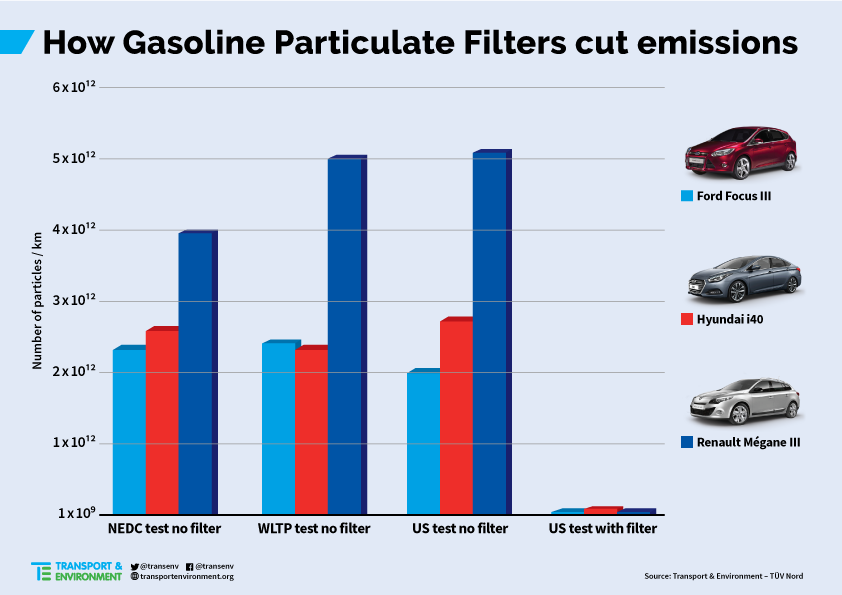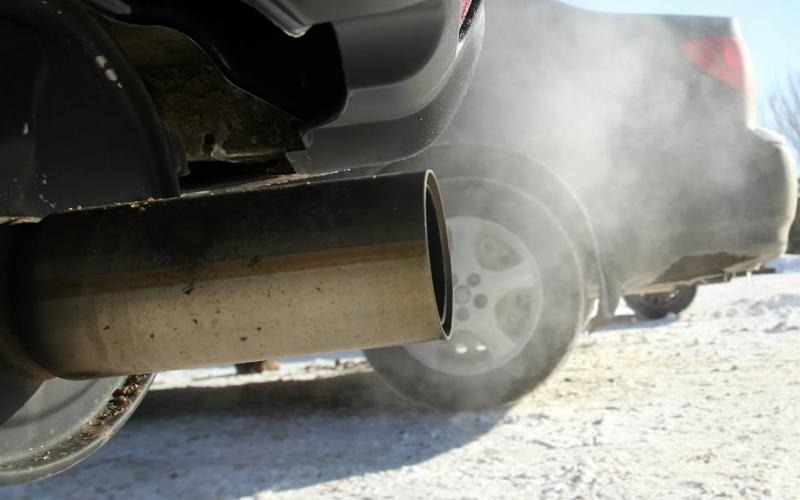

A ‘Petrolgate’ scandal in the making
Governments and carmakers are paving the way for a ‘Petrolgate’ scandal. That warning came from T&E after it obtained documents showing some governments and the car industry are trying to weaken the proposed new EU legislation on measuring particulate emissions from cars in real-world tests. Carmakers are trying to avoid having to pay €25 for a gasoline particulate filter, despite the new petrol fleet endangering human health.
Interested in this kind of news?
Receive them directly in your inbox. Delivered once a week.
Emissions of particulate matter, in particular micro-particles of soot, are harmful to human health. Up to now, discussion about particulate emissions has focused on diesel engines, where the filter has been mandatory for all new vehicles since 2011.
But now the focus has moved to petrol because of a new generation of gasoline direct-injection (GDI) engines that pump out micro-particles that can get into the bloodstream via the lungs and whose share is rapidly increasing. A particulate filter costing €25 per car is already available and can reduce emissions by 100 times, but records of negotiations and briefings obtained by T&E show the car industry is lobbying to allow them to overshoot the particulate limits for petrol cars by 300%, so they would not have to fit the filter. The documents also record that some governments, including those of Spain and Sweden, want to delay the new tests’ introduction by one year, while no government is opposing the flexibility to exceed the limit by 50% that the Commission has proposed.
T&E’s clean vehicles engineer Florent Grelier said: ‘This is a Petrolgate scandal in the making. The Commission was warned about the risks of new petrol engines three years ago. Now, because of the rigging of type approval tests, it is preparing legislation on emissions from real-world driving, but its already inadequate proposal is being further threatened by carmakers, and by governments friendly towards them. The Commission and governments need to stand firm to prevent hundreds of thousands of avoidable premature deaths.’
Harmful levels of air pollution cause around 500,000 premature deaths a year and are estimated to cost the EU economies around €1 trillion annually. Discrepancies between emissions measured in tests and emissions on the road contributed to a legal judgement in London last week that found the British government’s air pollution strategy inadequate and illegal. ClientEarth, a legal NGO, won its case against the UK government, with the judge saying ministers used the well-known over-optimistic pollution modelling based on flawed laboratory testing of diesel vehicles rather than on emissions from real-world driving.
